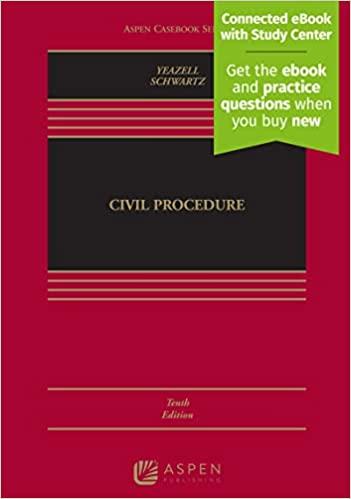Question
The U.S. Constitution of 1787 accommodated the states of the American South and provided that African American slaves were to be counted as three-fifths of
The U.S. Constitution of 1787 accommodated the states of the American South and provided that African American slaves were to be counted as "three-fifths" of a person in the apportionment of Congress and taxes, and Congress was barred from prohibiting the importation of slaves until 1820. Another provision provided that enslaved or indentured individuals who escaped to a non-slave state or territory did not shed the shackles of involuntary servitude. In 1793, Congress authorized slave owners to "seize or arrest" fugitives. The Fugitive Slave Act of 1793 later was amended to require federal marshals to assist in the apprehension of fugitives.
The Supreme Court in Prigg v. Pennsylvania held that the act was a valid exercise of the "positive and unqualified" federal constitutional authority to safeguard the property interest in fugitive slaves. The federal law was held to take precedence over all state legislation on the topic (Prigg v. Pennsylvania, 41 U.S. 539 [1842]).
Between 1810 and 1850, estimates are that the Underground Railroad spirited as many as one hundred thousand fugitive slaves, valued at $30 million, to safety. In Philadelphia alone, more than nine thousand fugitives were sheltered between 1830 and 1860.
The most direct legal confrontation between the ideologies of abolitionism and slavery occurred during the federal jury trials of individuals charged with harboring and safeguarding fugitive slaves. The trials typically took place in non-slave states adjacent to slave states. Federal judges justified the conviction of abolitionists on the grounds of states' rights, property rights, and law and order.
The defendants were portrayed as common criminals, and juries were instructed that they were required to uphold the rule of law. Questions of human rights and the natural right to freedom were dismissed as irrelevant to the question of the defendant's guilt.
What course was open to a conscientious anti-slavery judge? Should a federal judge have resigned rather than enforce the law or removed himself from the case? What about instructing the jury to acquit the defendants on the grounds that the law was immoral or violated ones natural rights? What is the responsibility of a judge who finds an abortion or death penalty law morally objectionable?
Step by Step Solution
There are 3 Steps involved in it
Step: 1

Get Instant Access to Expert-Tailored Solutions
See step-by-step solutions with expert insights and AI powered tools for academic success
Step: 2

Step: 3

Ace Your Homework with AI
Get the answers you need in no time with our AI-driven, step-by-step assistance
Get Started


